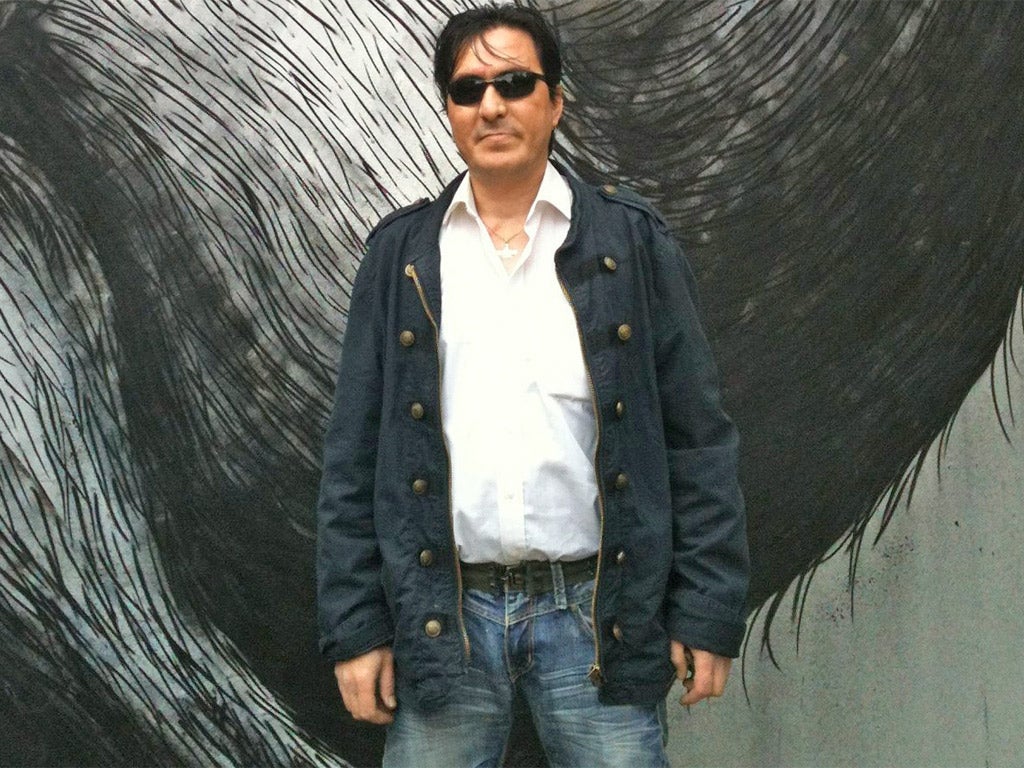How hateful is Britain? Insulted, bullied and murdered – for being disabled
In our supposedly civilised society, people who are ‘different’ still face abuse, vigilante justice and death


David is an autistic man in his fifties. He lives in his own flat in north-east London, earning piecemeal money washing cars but needing help with basic tasks such as shaving and washing his hair. He describes himself as someone who is good at talking – “a bit bubbly” – and happy playing on his computer games console.
One day, while waiting to meet his support worker, he went to use a public toilet. A group of seven boys began abusing and jostling him, then threatened to tell police he was a paedophile. So David panicked, pushing them aside in a bid to escape. As he tried to flee, a woman passer-by intervened; the boys said he was a pervert and she believed them, ignoring his protestations of innocence.
This sort of scenario happens all too often. Reported hate crime against people with disabilities is rising, fanned by rhetoric against “scroungers” – and those with learning difficulties endure most hostility. Fortunately, David’s situation was stopped from getting out of hand when his support worker arrived. “Maybe I was in the wrong place at the wrong time,” he said later. “Maybe they think I am different because I am an autistic man. Do you think they can see that when I walk by?”
So a man with moderate learning difficulties will never again dare use a public urinal and must spend his life worrying that those he passes in the street mark him out as a misfit. Yet it could have been much worse. For we live in a nation in which there is rising hysteria over paedophilia – and when this fuses with primeval fears over people with disabilities, the results can be lethally explosive.
We saw what can happen recently when these two disturbing trends overlap with the murder of Bijan Ebrahimi.
This was one of those stories that stop you in your tracks by exposing the underbelly of our supposedly civilised society: the vigilante killing of a lonely man, set on fire in his front garden, like something out of the darkest thriller.
Yet few noticed how this evil event bore the horrific hallmarks of a hate killing. Ebrahimi was a disabled man, driven out of his previous house by a mysterious arson attack following complaints from neighbours, then picked upon again for being “different” on his new estate in Bristol. He suffered from low-level harassment, phony paedophile rumours, police failures to protect him – then the most awful death.
This story is far from a one-off. Scandalous failure to protect a disabled victim of hate crime is sadly familiar from cases such as that of Fiona Pilkington, who killed herself and her daughter after years of abuse. And potent accusations of paedophilia are used with sickening regularity by inadequates as an excuse to beat, bully, maim and murder people with learning difficulties.
There are few worse accusation than being called a child abuser – and such a label is hard to shake off. “This makes it open season on someone,” says Katharine Quarmby, author of Scapegoat, an investigation into disability hate crimes. “Once you are called a paedophile, the gates of hell are opened.’”
Ms Quarmby tells the story in her book of Keith Philpott, a Teesside man who was labelled a paedophile then gagged, bound, beaten to death and disembowelled. She found three more men with learning difficulties smeared the same way before being murdered over the following 12 months alone. One was Steven Hoskin, forced to sign a false confession before being drugged, dragged around on a dog collar and thrown to his death over a railway viaduct.
More recently, there was the high-profile case of David Askew, “tormented to death” in an unlawful killing by youths on his Manchester estate. Once again, he was frequently called a “paedo”. The word is used to dehumanise people with learning difficulties, then to sanction in twisted minds abuse, bullying and savagery.
Studies indicate at least eight in 10 people with learning difficulties are victims of verbal assault each year – and “paedo” is a regular term of abuse. These are, sadly, men and women defined by others by their difference. They may look at people unusually or have the wrong hairstyle, so they fit media and movie stereotypes of sex-pest monsters. Often they are placed in the poorest, most fractured communities, putting them at greatest risk of violence.
One housing worker told me of a young man with autism in Yorkshire who moved with immense pride into his own property; one year later, he was back with his parents after being labelled a “paedo” for staring out of his window. I know of a charity warned by council officials not to house people with learning difficulties opposite a school. Forget complacent talk of the Paralympics changing attitudes; after all, Britain was held up this week in New Zealand as an example of how not to treat people with disabilities.
This is one more reason for urging caution over the current paedophile hysteria, so corrosive to communal well-being. This is not to dismiss casually the fears of parents; as the father of a daughter with profound disabilities whose life depends on others, I understand them all too well. Nor would I downplay the genuine threat from people whose disturbed sexuality makes them a danger to children – although it is worth pointing out that the vast majority of offenders know their victims well and are highly socialised individuals.
But we live in a nation where “paedo” is part of playground banter; where vigilante gangs act as judge and jury in hunting down people they determine to be paedophiles; where parents are told not to take photographs of their families in public places; where men worry about working with children in primary schools or as social workers; and where sex offenders account for one in seven prisoners in our jails, their numbers rising as sentences lengthen.
Look at a case highlighted earlier this year on a legal blog. A retired man in his seventies was arrested for having images of child pornography and banned from contact with children after taking his computer to be mended. Interview transcripts recorded the police pressing him to confess; when the case finally came to court the prosecution urged him to change his plea to guilty. His nightmare only ended when police finally revealed the supposedly sinister pictures – and they turned out to be his grandchildren playing with a hose on a hot summer day.
Moral outrage is fine. But moral panic is dangerous. And when vigilance warps into vigilantism, it increases the dangers for a group of people already on the margins of mainstream society. We should be making far more effort to include people with learning difficulties in our lives. Instead, all too often they are being abused, damned, excluded and, in the very worst cases, lynched for being different.
Join our commenting forum
Join thought-provoking conversations, follow other Independent readers and see their replies
Comments
Bookmark popover
Removed from bookmarks